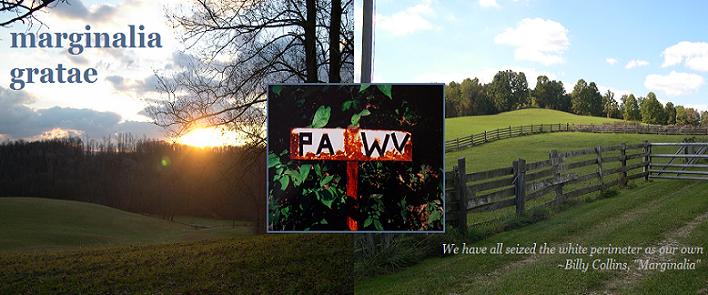Q1. What is the best classic you were “forced” to read in school (and why)?
Hmm . . . [scanning bookshelf]. This kind of question is precisely what makes canon discussions so darn difficult, no? Okay, so . . .
Today, at this moment, I’m thinking my choice must be Ralph Ellison’s Invisible Man (though some may foolishly contest its canonical status). Here’s why:
Though separated by both time and war, Ellison’s novel seems to me the logical conclusion of two truly remarkable American moments, the Jazz Age and the Harlem Renaissance, in style, tone, and subject: for me, it’s like the literary grandchild of Dorothy Parker and Langston Hughes. Still almost painfully relevant, Invisible Man is uniquely, cogently, an American novel, one that speaks across multiple cultural moments---its narrator’s, its author’s, and this, our contemporary moment. Consider Ellison’s lines: “Step outside the narrow borders of what men call reality and you step into chaos [. . .] or imagination” (576) and “Life is to be lived, not controlled; and humanity is won by continuing to play in the face of certain defeat” (577). The book is worth reading for these passages alone.
In fact, it has been a decade since I last read it; I do believe it is time to have another look.
Q2: What was the worst classic you were forced to endure (and why)?
Vanity Fair. Vanity Fair. Oh, Dear God, Vanity Fair. Never has any author even come close to rivaling Thackeray’s contemptible, damnable characters. I hated them all. I hate him for writing them into existence. I realize that it is intentionally a “Novel without a Hero.” I don’t care. Vanitas Vanitatum be damned. I hate this novel. If I have to say much more, I will just start swearing uncontrollably.
Q3: Which classic should every student be required to read (and why)?
Though not fiction (and for some reason I just assumed we were talking fiction here), I’m going to jump genre and recommend that every student should be required to read and thoughtfully consider Aristotle’s On Rhetoric and Poetics (and since there is a quality compilation edition available, I’m counting these treatises as one). There is so much of value for anyone interested in language, discourse, civic participation, et al.
(and . . . can you require someone to ‘thoughtfully consider’ a work? Neat.)
If I must decide on a distinctly literary piece, however, then I’ll go with poetry here and select Dante’s The Inferno (the rest of the Divine Comedy should be recommended, but not required, reading).
Q4: Which classic should be put to rest immediately (and why)?
This is a tough one because even though there are a few classics I despise (Canterbury Tales, Vanity Fair, Tess of the D’Urbervilles, The House of Mirth, The Old Man and the Sea), I suppose I can see their literary value and purpose. But to put to rest a classic . . .
Well . . . it’s a major stretch, but I’ll go with the entire Star Trek corpus (including the franchise). Maybe only a cult classic, the novels were inspired by a bad ‘60s television show!? C’mon now. So I’ll go with a loose interpretation of ‘classic’ and ax Star Trek, effective immediately.
I’m also a little over the Kerouac hype, but I don’t know if I’d put On the Road to rest, per se---especially since I kinda dig it.
Q5: **Bonus** Why do you think certain books become classics?
Here I’ll adopt Kerr’s definition of curriculum and apply it to the classics: “nothing less than the statement a college [perhaps in this case, a culture] makes about what, out of the totality of man’s [sic] constantly growing knowledge and experience, is considered useful, appropriate, or relevant to the lives of educated men and women at a certain point of time.”
That, coupled with longevity--or perhaps the honoring of or curiousity about what has been “useful, appropriate, or relevant” to previous generations ---is, to my mind, what makes a classic.
I would also argue that craft has something to do with it, though that may be a troubled and tenuous argument.
And now, to plagiarize Bradley, if you are reading this, consider yourself tagged.

